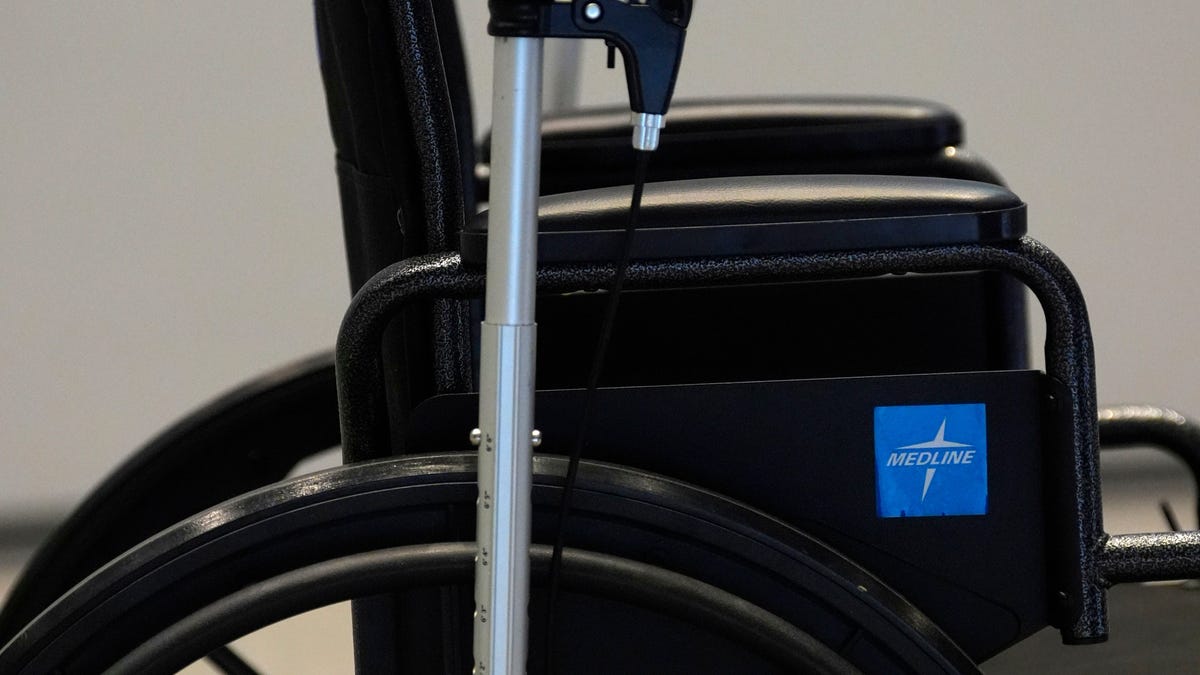
How are tariffs and your 401(k) retirement savings intertwined?
Experts say a rise in tariffs can lead to several factors that impact your retirement savings.
Older Americans and adult caregivers are anxious about tariff-induced price hikes, as a large portion of prescription drugs and medical equipment comes from overseas.
President Donald Trump has paused reciprocal tariffs on dozens of countries as they negotiate trade deals, but a 145% levy remains on most goods from China. Trump announced tariff exemptions for smartphones, computers and other electronic imports on April 11.
But despite urging from the medical community, Trump has yet to announce any exemptions for health care products like hearing aids or wheelchairs. On April 8, Trump said “a major tariff” on foreign pharmaceuticals is coming soon, though details have yet to be announced. Medications were exempt from the sweeping tariffs imposed and then paused earlier in April.
“Despite ongoing efforts to build the domestic supply chain, the U.S. health care system relies significantly on international sources for many drugs and devices needed to both care for patients and protect our health care workers,” Richard Pollack, president and CEO of the American Hospital Association, wrote to Trump in February, urging him to grant tariff exceptions on medications and medical supplies.
He added: “For example, U.S. providers import many cancer and cardiovascular medications, immunosuppressives, antibiotics and combination antibiotics from China. For many patients, even a temporary disruption in their access to these needed medications could put them at significant risk of harm, including death.”
While advocates in the health care space are worried tariffs will stretch hospitals’ already dwindling resources, some family caregivers told USA TODAY they are stressed about their own wallets.
Elderly adults are more susceptible to diseases, impairments and mobility limitations that require prescription drugs and accessories like walkers, shower seats, incontinence products, pacemakers and insulin pumps. Nicole Jorwic, chief program officer at Caring Across Generations, said more family caregivers were already stepping in to help fill financial gaps for aging relatives because Social Security checks don’t cover many seniors’ housing and care costs. Now with Trump’s tariffs, she said, those caregivers will be hit even harder.
It’s an issue garnering national attention. Former President Joe Biden accused Trump of “taking a hatchet” to the Social Security Administration.
“There’s just a lot of reason for financial fear and for fear of what aging is going to look like in this country because of what’s going on,” Jorwic said. “Not just with the tariffs − with the DOGE cuts at Social Security. All of these things are really causing a lot of fear for older adults and the family caregivers that are already strapped and stressed providing that care.”
These are essential items for some seniors, second only to food and shelter, said Yehuda Tropper, CEO of Beca Life Settlements, a company that assists in selling life insurance policies for cash. Tropper said he sees many seniors on fixed incomes who reluctantly consider selling their life insurance policies because they can’t afford the mobility products that make their lives worth living.
Tariffs, Tropper said, are “really hitting the senior population hard.”
Mark Smoot, 74, is a caregiver to his 73-year-old wife in the Indianapolis suburbs. She has Alzheimer’s, he said. Smoot agrees that prices might surge in the next few years, but he said it’s too early to tell what tariffs really mean for caregivers and that “people are kind of panicking.”
“Initially, yeah, they’re going to have a negative impact on cost,” he said. “But I think, and maybe I’m wrong, but I think in a couple years, you’re going to see a huge turnaround for the economy here. But it’s not going to happen overnight.”
Jorwic is a caregiver to her three grandparents who are in their 90s. She said she helps them get groceries and takes them to doctor’s appointments. She steps in during emergencies, too, like when her grandmother fell and broke her back. During those situations, family caregivers could be out hundreds of dollars in plane tickets and missed work, she said, on top of the daily expenses needed to take care of an aging adult.
And for the older Americans who do their best to stay financially independent on fixed incomes − with investments and retirement accounts that are taking huge hits right now, Jorwic added − tariffs are a huge threat.
The trade war has sent markets on a rollercoaster in April. Trump had proposed high tariffs for dozens of countries, only to pause most of them on April 9 − except for China, on which he raised the levy to 145%. Those paused tariffs still could go into effect in a couple months if deals aren’t reached. Meanwhile, Americans have watched their 401(k) accounts fluctuate dramatically.
Market uncertainty, Jorwic said, is “literally impacting older adults’ bottom lines.”
Madeline Mitchell’s role covering women and the caregiving economy at USA TODAY is funded by a grant from Pivotal Ventures. Pivotal Ventures does not provide editorial input. Reach Madeline at memitchell@usatoday.com and @maddiemitch_ on X.
